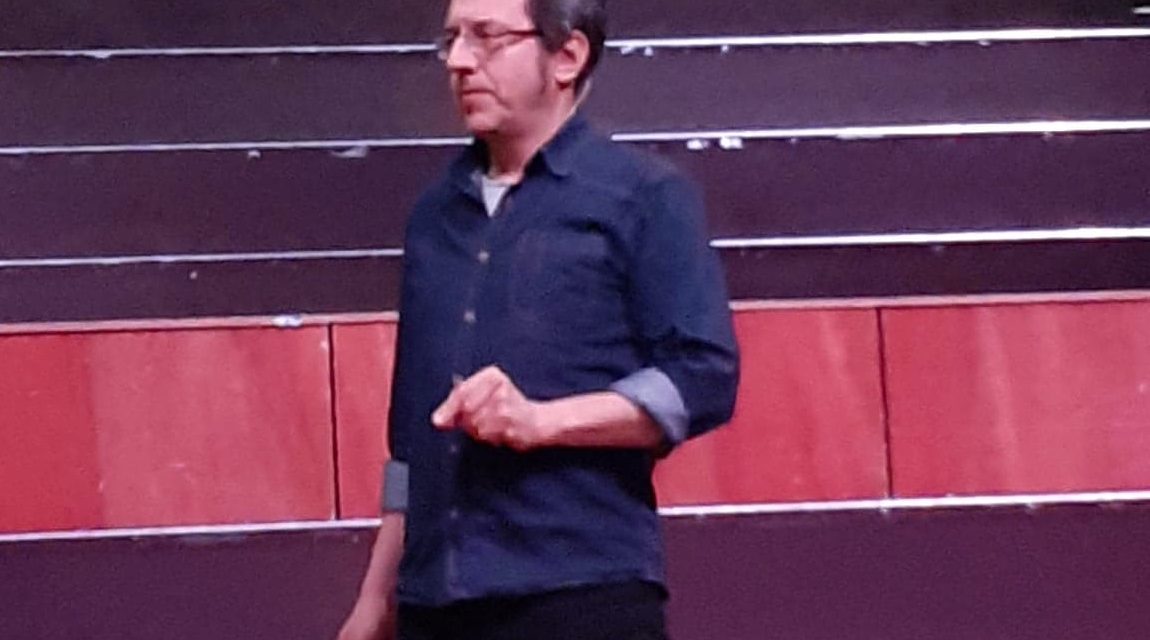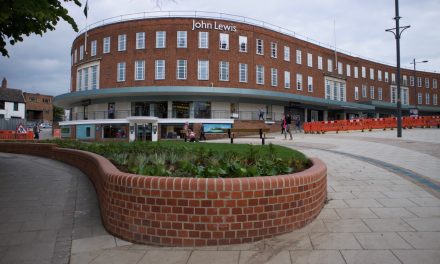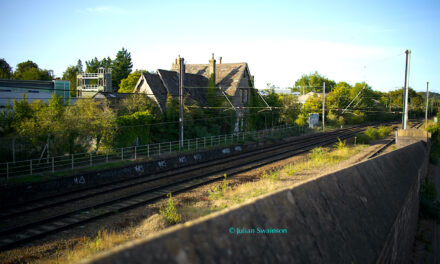Our guest reviewer Sean Meleady went to see George Monbiot on his recent visit to Norwich.
Journalist, writer and environmental activist George Monbiot attracted a large, lively and inquisitive sell-out crowd to the Halls at St Andrews Plain. This event organised by Norwich Arts Centre was not just an opportunity to discuss climate change but also environmental activism and the political as well as economic changes needed to tackle the climate crisis.
Monbiot was in an ebullient mood at the beginning of the evening basking in the decision by the high court earlier in the day to block the construction of a third runway at Heathrow Airport. According to Monbiot due to the disastrous legacy of fossil fuels the country can’t afford a third runway at Heathrow.
Despite his radical credentials Monbiot is from a Conservative Oxfordshire family. Sir Raymond Geoffrey Monbiot his father advised the Conservative trade and industry forum, his mother Rosalie was a Tory councillor who led South Oxfordshire District Council while his maternal grandfather was Tory MP for Twickenham. Monbiot studied Zoology at Brasenose College, Oxford.
However, despite this distinctly unradical home counties background Monbiot is no stranger to Norfolk. His uncle the late Canon Hereward Cooke was the Deputy leader of Norwich City Council from 2002 to 2006 and Monbiot emphasised his opposition to Norfolk County Council’s plan for the Wensum Valley link road.
Monbiot argued that the British government’s plan to have net zero carbon emissions by 2050 was not only unambitious but not in line with the Paris agreement or UN targets. According to his argument many companies who claim they are going to reduce their carbon emissions are reliant on offsetting these emissions.
According to Monbiot such companies are just paying lip service to reducing carbon emissions and are still locked into a mantra of sustained economic growth which is outdated. As Monbiot said ‘The people who are locking us into the 20th century have the cheek to call us Luddites’.
As the evening progressed Monbiot explained his critique of the British political system. According to his definition democracy should mean the control of the political system by the people. In reality the system is only partially democratic as it relies on ‘presumed consent’ gained at elections based on political party manifestos.
Monbiot admitted he was committing ‘secular blasphemy’ in the next part of the talk by identifying the problem as capitalism. This he said was the equivalent of declaring ‘God is dead’ in the 19th century as he went as far to declare that capitalism ‘was incompatible with life on earth’.
Although Monbiot was quick to point out that he wasn’t a Communist he emphasised that he felt that capitalism with its demands for ‘perpetual economic growth’ is not compatible with environmentalism. According to Monbiot the promise of capitalism is that everyone can potentially enjoy luxury, but that luxury is predicated on the basis that others don’t enjoy luxury. In other words the world doesn’t have the resources or size for the majority of the population to live in luxury. As Monbiot pointed out numbers in a bank account give people the right to take money away from others.
Monbiot emphasised the importance of non-violent civil disobedience particularly the role of the School Climate Strikes and Extinction Rebellion. However he also emphasised that in order to deal with the climate crisis representative democracy needs to be coupled with participatory democracy. He then discussed two examples where this had worked the Icelandic capital Reykjavik and the Brazilian city of Porto Alegre.
In Reykjavik the local authorities developed a digital democracy experiment called ‘Your Priorities’ where citizens could suggest new laws, policies and budget measures. Local representatives are expected to approve the measures or explain why they can’t be implemented.
Porto Alegre in southern Brazil pioneered a form of participatory budgeting from the early 1990s until 2017 which involved city residents voting on how their taxes should be spent. Monbiot pointed out that this led to the city moving up the Brazilian Development Index and broke the influence of organised crime in the city. It also led and the unusual spectacle of citizens protesting in favour of tax rises going against all traditional economic orthodoxy.
Monbiot concluded by arguing for what he called ‘The Commons’. This he said is a society where products and resources are shared in perpetuity which needs to develop alongside movements to bring about systematic change. Indeed, at the end of his hour long talk Monbiot left the audience with one key phrase ‘system change not climate breakdown’.
Overall George Monbiot gave an entertaining and highly informative talk about a topic that he is clearly deeply passionate about. He also provided a robust critique of contemporary capitalism and the way it contributes to the current climate crisis.
Monbiot also responded well to audience questions as why he wasn’t a communist citing the Communist Manifesto as a negative blueprint for the deficiencies of the Soviet Union, what activists in provincial areas like Norwich can do to support an often Londoncentric climate movement and whether activists should engage with climate change deniers.
However perhaps to be slightly critical what was missing here is how can this radical change be brought about in the face of a political establishment resistant to such reform and business reluctance to move away from continuous growth and fossil fuels. Monbiot’s answer is to build movements – but is that enough?
Sean Meleady 2020






Recent Comments